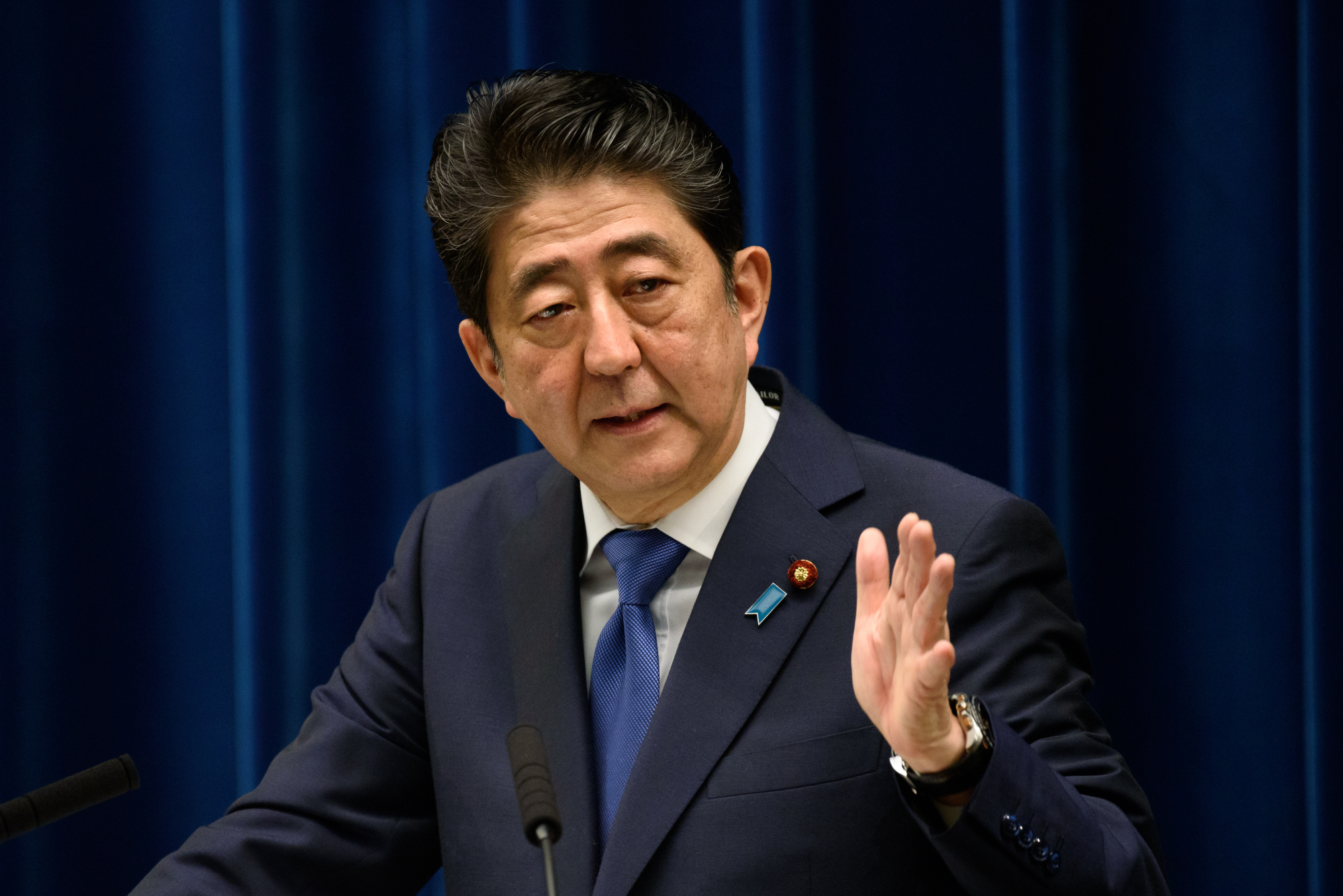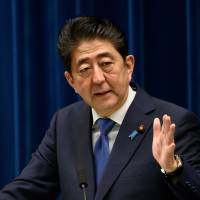Prime Minister Shinzo Abe has reiterated his government's plan to hike the consumption tax to 10 percent from the current 8 percent in October 2019 unless a setback such as a major financial crisis or massive earthquake occurs.
"Our basic policy is to increase the tax unless something happens on the scale of the Lehman shock," he said Tuesday on a TV program, referring to the financial crisis triggered by the collapse of U.S. investment bank Lehman Brothers Inc. in 2008.
Although the tax was originally set to be raised to 10 percent in October 2015, Abe has twice postponed the plan to try to ensure a solid economic recovery.
The nation's economy is on a moderate recovery path at present, expanding for a sixth consecutive quarter in the second quarter of 2017, the longest stretch since the period between January 2005 and June 2006.
Abe said Monday his government will spend ¥2 trillion ($18 billion) on a policy package focused on boosting support for child care and higher education on the premise that the sales tax will be raised.
He said at the time that to secure funding for his drive to foster human resources, he intends to change how revenue from the consumption tax hike will be used.
Under the previous plan, the government was to use a large portion of the nearly ¥5 trillion in increased revenue from the tax hike to repay debt and the remainder to improve the country's welfare system.




